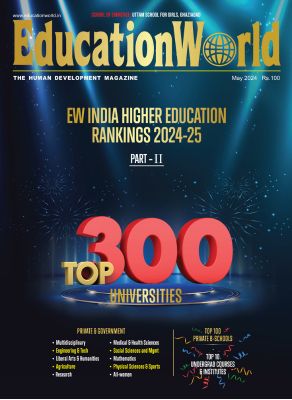THE CONSEQUENCES OF arbitrarily increasing the number of engineering colleges and capacity in popular study programmes for over a decade, are beginning to manifest in the south-eastern seaboard state of Tamil Nadu (pop. 72 million). Ahead of the admission season, 20 private engineering colleges in the state have sought permission from the Delhi-based All India Council for Technical Education (AICTE) ” the apex regulatory body authorised to licence and administer technical institutions countrywide ” to discontinue their IT (information technology) and computer science programmes. Five colleges are seeking permission to reduce intake into computer science, eight in IT and 10 in electronics and communications engineering programmes this year. Since the 1990s, these were study programmes most favoured by students, but now there aren™t many takers.
Although academics cite several reasons for this phenomenon, the root cause is that capacity creation in engineering colleges is far outstripping demand. In the academic year 2013-2014, 103,000 of the available 279,000 seats in the state™s 564 engineering colleges had no takers. Most vacancies are in private self-financing engineering colleges with two of them unable to fill even a single seat, and eight colleges unable to fill 10 percent of capacity. That a growing number of private engineering colleges have to move heaven and earth to attract students is clear indication of the poor quality of education dispensed by them.
œMany private colleges established during the past two-three years are struggling to find qualified faculty and students. Almost 100 engineering colleges in Tamil Nadu are up for sale, because of low student enrolment and high operational costs and overheads. In the circumstances, the state government should take the initiative to shut down low-quality institutions to protect the interests of gullible students who unknowingly enroll in colleges lacking basic infrastructure and faculty. Left to themselves, poor quality colleges continue to plod on ruining the future of thousands of students, says E. Balaguruswamy, former vice chancellor of Anna University.
Yet, even if the state is inclined to be lax, the final authority for greenlighting and monitoring engineering colleges countrywide is the Delhi-based AICTE which has been recklessly licencing private engineering colleges in Tamil Nadu for over a decade. To the extent that the number has more than doubled from 237 in 2005-06 to 564 in 2013-14 even as the IT industry™s demand for engineers is tapering off due to slow growth of the industry and the economy in general. Moreover, AICTE has failed in its primary duty of checking the quality of licenced colleges, most of whom are staffed with inexperienced temporary faculty, and lack research and development facilities.
In a landmark judgement delivered in April last year in the Bharathidasan University vs. AICTE (AIR 2001 SC 2867 ), in which the varsity challenged an AICTE regulation mandating the council™s prior approval for introducing new technical education programmes by universities, the Supreme Court held that such approval is not required as AICTE is only œan advisory body as per the AICTE Act. The apex court directed the University Grants Commission (UGC) to take over the regulatory powers of AICTE, following which UGC asked recognised universities to take on the role of affiliating new colleges from 2014-15, and imposed a ban on the promotion of new colleges and enhancing student intake in this academic year. This order was strongly opposed by engineering college managements and pursuant to a petition filed by Odisha Technical Colleges™ Association, the Supreme Court issued an interim order on April 17 restoring AICTE™s regulatory powers over engineering and management colleges for the academic year 2014-15.
Meanwhile given the incremental supply-demand disequilibrium, the great majority of Tamil Nadu™s 564 and counting engineering colleges are experiencing the impact of recessionary trends in the Indian economy. Campus recruitment has declined by 40 percent with multinational IT firms restricting themselves to top-ranked engineering colleges. œMajor indigenous companies such as Wipro, Accenture, TCS, Cognizant Technologies and Infosys are hiring smaller numbers and are restricting themselves to recruiting toppers at Rs.3-4 lakh per year ” remuneration which has been static for four consecutive years. Although colleges in tier-2 cities are trying their best to attract companies to their campuses, industry response has been tepid, says Chennai-based education consultant Moorthy Selvakumaran.
Clearly, a season of collegiate shakeouts ” mergers, acquisitions and closures ” is imminent in Tamil Nadu. The state™s growing tribe of education entrepreneurs are set to learn that there™s more to education than constructing grandiose colleges. The quality of education they dispense will separate winners from losers.
Hemalatha Raghupathi (Chennai)
Tamil Nadu: Crunch time
EducationWorld May 14 | EducationWorld


























